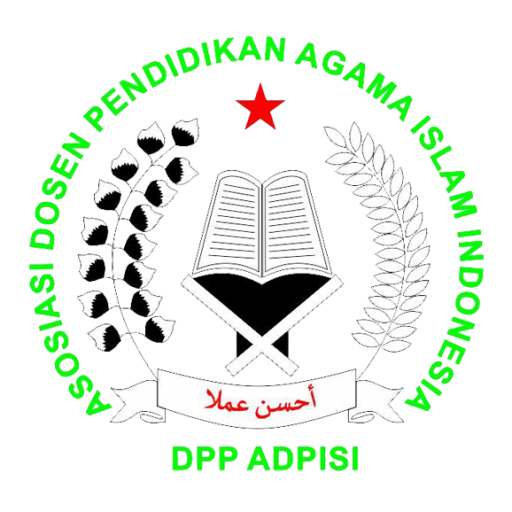Optimalisasi Pengelolaan Sampah dalam Perspektif Pendidikan Islam Di Perumahan Kelurahan Tamansari Kecamatan Bondowoso
DOI:
https://doi.org/10.61595/edukais.2017.1.1.37-47Keywords:
Garbage Character, Optimization, Islamic Education PerspectiveAbstract
Waste is one of the problems that can not be avoided by the population. Increasing population causes increased activity of the population, which means also can increase the amount of waste, it is due to the many sources of waste that have sprung up such as in housing, tourist attractions, and other public facilities, which can cause increased waste in housing tamansari village bondowoso district, a waste management system that is available is still limited and they rely on empty land disposal of waste and TPS there is still not good and the condition lug garbage in housing tamansari village bondowoso district still mixed or without sorting, so that people who throw their garbage has not been able to do the sorting for a variety of organic and inorganic waste. So in the housing tamansari village bondowoso district requires efforts to optimize the process of waste management in the review based on the generation and waste characteristics and land conditions, So these problems to do an analysis condition of waste management in housing tamansari village bondowoso district, then get the facilities and infrastructure needs is not good enough, so it appears the problem of garbage in the location is still a lack of research and polling services lug garbage in each source. Based conditions, people still follow the custom of throwing garbage in the river and dispose of their garbage in vacant land. Thus the need in optimizing waste management in housing tamansari village bondowoso district, with the addition of lug and waste collection system in accordance with the state of the location, so that the lug and garbage collection system to be effective. And sticking ti the qur’an and hadis about cleanliness is part of faith
References
Hosaini, H. (2020). Pembelajaran dalam era “new normal” di pondok pesantren Nurul Qarnain Jember tahun 2020. LISAN AL-HAL: Jurnal Pengembangan Pemikiran dan Kebudayaan, 14(2), 361-380.
Samsudi, W., & Hosaini, H. (2020). Kebijakan Sekolah dalam Mengaplikasikan Pembelajaran Berbasis Digital di Era Industri 4.0. Edukais: Jurnal Pemikiran Keislaman, 4(2), 120-125.
Mahtum, R., & Zikra, A. (2022, November). Realizing Harmony between Religious People through Strengthening Moderation Values in Strengthening Community Resilience After the Covid 19 Pandemic. In The 4th International Conference on University Community Engagement (ICON-UCE 2022) (Vol. 4, pp. 293-299).
Hosaini, H., & Samsudi, W. (2020). Menakar Moderatisme antar Umat Beragama di Desa Wisata Kebangsaan. Edukais: Jurnal Pemikiran Keislaman, 4(1), 1-10.
Hosaini, H. (2020). Integrasi Konsep Keislaman Yang Rahmatan Lil ‘Alamin Menangkal Faham Ekstremisme Sebagai Ideologi Beragama Dalam Bingkai Aktifitas Kegiatan Keagmaan Mahasiswa Di Kampus Universitas Bondowoso. Edukais: Jurnal Pemikiran Keislaman, 3(1), 12-30.
Hosaini, H., & Kurniawan, S. (2019). Manajemen Pesantren dalam Pembinaan Umat. Edukais: Jurnal Pemikiran Keislaman, 3(2), 82-98.
Muis, A., Eriyanto, E., & Readi, A. (2022). Role of the Islamic Education teacher in the Moral Improvement of Learners. At-Tarbiyat: Jurnal Pendidikan Islam, 5(3).
Halim, A., Hosaini, H., Zukin, A., & Mahtum, R. (2022). PARADIGMA ISLAM MODERAT DI INDONESIA DALAM MEMBENTUK PERDAMAIAN DUNIA. JISMA: Jurnal Ilmu Sosial, Manajemen, dan Akuntansi, 1(4), 705-708.
Zukin, A., & Firdaus, M. (2022). Development Of Islamic Religious Education Books With Contextual Teaching And Learning. At-Tarbiyat: Jurnal Pendidikan Islam, 5(1).
Hosaini, H., Zikra, A., & Muslimin, M. (2022). EFFORTS TO IMPROVE TEACHER'S PROFESSIONALISM IN THE TEACHING LEARNING PROCESS. Al-Risalah: Jurnal Studi Agama dan Pemikiran Islam, 13(2), 265-294.
Salikin, H., Alfani, F. R., & Sayfullah, H. (2021). Traditional Madurese Engagement Amids the Social Change of the Kangean Society. RETORIKA: Jurnal Ilmu Bahasa, 7(1), 32-42.
Hosaini, H., & Fikro, M. I. (2021). PANCASILA SEBAGAI WUJUD ISLAM RAHMATAN LI AL-ALAMIIN. Moderation| Journal of Islamic Studies Review, 1(1), 91-98.
Hosaini, H. (2020). Ngaji Sosmed Tangkal Pemahaman Radikal melalui Pendampingan Komunitas Lansia dengan sajian Program Ngabari di Desa Sukorejo Sukowono Jember. As-Sidanah: Jurnal Pengabdian Masyarakat, 2(1), 159-190.
Agustin, Y. D., Hosaini, H., & Agustin, L. (2021). ANALYSIS OF THE IMPACT OF EARLY MARRIAGE ON ADOLESCENT REPRODUCTIVE HEALTH BASED ON HEALTH PERSPECTIVES AND ISLAMIC RELIGION. UNEJ e-Proceeding, 103-107.
Hosaini, H., & Kamiluddin, M. (2021). Efektivitas Model Pembelajaran Means-Ends Analysis (MEA) dalam meningkatkan Keterampilan Komunikasi Interpersonal dan Pemecahan Masalah pada mata pelajaran Fikih. Edukais: Jurnal Pemikiran Keislaman, 5(1), 43-53.
‘Amir, Najib Khalid al-, Tarbiyah Rasulullah, terj. Ibnu Muhammad dan Fakhruddin Nursyam, cet. ke-4, Jakarta: Gema Insani Press, 2000.
Hosaini, H. (2020). PEMBELAJARAN DALAM ERA “NEW NORMAL” DI PONDOK PESANTREN NURUL QARNAIN JEMBER TAHUN 2020. LISAN AL-HAL: Jurnal Pengembangan Pemikiran dan Kebudayaan, 14(2), 361-380.
Hosaini, H. (2019). Behauvioristik Basid Learning Dalam Bingkai Pendidikan Islam Perspektif Al-Ghazali:(Pembelajaran Berbasis Prilaku Dalam Pandangan Pendidikan Islam). Edukais: Jurnal Pemikiran Keislaman, 3(1), 23-45.
Muslimin, M., & Hosaini, H. (2019). KONSEP PENDIDIKAN ANAK MENURUT AL-QUR’AN DAN HADITS. Edupedia: Jurnal Studi Pendidikan dan Pedagogi Islam, 4(1), 67-75.

















